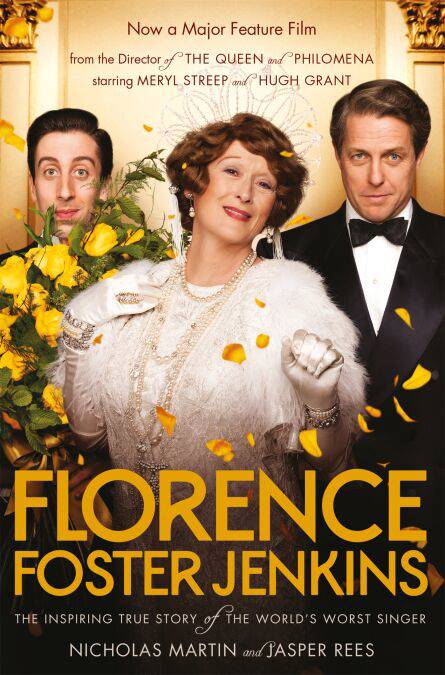
- Retrait gratuit dans votre magasin Club
- 7.000.000 titres dans notre catalogue
- Payer en toute sécurité
- Toujours un magasin près de chez vous
- Retrait gratuit dans votre magasin Club
- 7.000.0000 titres dans notre catalogue
- Payer en toute sécurité
- Toujours un magasin près de chez vous
Description
People may say that I couldn't sing. But no one can say that I didn't sing.'
Despite lacking pitch, rhythm or tone, Florence Foster Jenkins became one of America's best-known sopranos, celebrated for her unique recordings and her sell-out concert at Carnegie Hall.
Born in 1868 to wealthy Pennsylvanian parents, Florence was a talented young pianist but her life was thrown into turmoil when she eloped with Frank Jenkins, a man twice her age. The marriage proved a disaster and, in order to survive, Florence was forced to abandon her dreams of a musical career and teach the piano. Then her father died in 1909 and, newly installed in New York, she used a considerable inheritance to fund her passion. She set up a prestigious amateur music club and began staging operas. Aided by her English common-law husband, St Clair Bayfield, she worked tirelessly to support the city's musical life. Many young singers owed their start to Florence, but she too yearned to perform and began giving regular recitals that quickly attracted a cult following. And yet nothing could prepare the world for the astonishing climax of her career when, at the age of seventy-six, she performed at the most hallowed concert hall in America.
In Florence Foster Jenkins, Jasper Rees tells her extraordinary story, which inspired the film starring Meryl Streep and Hugh Grant, and directed by Stephen Frears. This remarkable book also includes Nicholas Martin's funny, moving and inspirational screenplay.
Spécifications
Parties prenantes
- Auteur(s) :
- Editeur:
Contenu
- Langue:
- Anglais
Caractéristiques
- EAN:
- 9781509824694
- Date de parution :
- 04-05-16
- Format:
- Ebook
- Protection digitale:
- Adobe DRM
- Format numérique:
- ePub

Les avis
Nous publions uniquement les avis qui respectent les conditions requises. Consultez nos conditions pour les avis.






